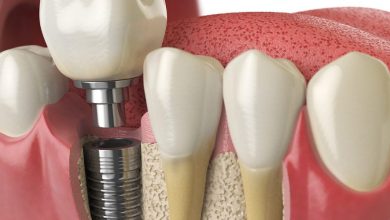
Search engine optimization (SEO) is a key component of any comprehensive digital marketing strategy. SEO helps websites attract more visitors by improving their organic search rankings and increasing their visibility in online search results. Technical SEO focuses on the underlying technical aspects of a website, such as its architecture, coding structure, and URL structure. By optimizing these components, businesses can ensure that their webpages are better optimized for search engines and therefore rank higher in organic searches. The goal of technical SEO is to improve website performance and make it easier for users to find relevant information quickly so they can convert into customers or leads. Understanding the benefits of technical SEO can help businesses maximize the impact of their efforts while avoiding common mistakes that could cost them valuable time and resources.
Understanding Technical SEO
Technical SEO involves making a number of changes to the code and architecture of a website in order to improve its performance for search engine algorithms. This includes tasks such as improving page speed, creating an effective URL structure, optimizing meta tags and titles for better indexing, removing broken links or redirects, ensuring that content is crawlable by search engines, and more. Making sure these elements are optimized can help increase organic traffic from search engine results pages (SERPs).
Common technical SEO mistakes include not having clean URLs with relevant keywords or using overly complex coding structures that slow down page loading time. Additionally, businesses may fail to optimize their meta descriptions effectively or overlook duplicate content issues on their sites. These errors can lead to fewer visitors finding your webpages through organic searches and decreased conversions if users don’t find what they need quickly enough when they arrive at your site.
Finally, businesses should also be aware of certain pitfalls associated with technical SEO including keyword stuffing which can lead to penalties from Google’s algorithm updates; failing to use proper HTML markup which can cause problems with crawling; and ignoring mobile optimization which is essential given the proliferation of smartphones today. By avoiding these common mistakes and understanding how best to implement technical SEO tactics properly businesses will be able maximize the impact of their efforts while ensuring long-term success in terms of increased organic traffic and conversion rates.
Tips for Technical SEO Success
When it comes to technical SEO success, analyzing your website’s architecture is essential. This involves examining the underlying code and structure of your webpages in order to ensure that they are optimized for search engines. It is important to check for potential issues such as broken links or redirects, improper coding structure, page loading speed issues and more. Fixing any errors that you find can help improve organic rankings and visibility in SERPs.
Another key component of effective technical SEO is optimizing URLs, page titles and meta descriptions. These elements should contain relevant keywords related to the content on each page in order to give search engine algorithms a better idea of what each webpage contains so that they can properly index them in their results pages. Additionally, ensuring these components are concise yet descriptive will also make them more visible when users type queries into search engines which increases overall click-through rates from SERPs to your site.
Impact of Technical SEO
One of the main benefits of technical SEO is that it can improve website performance and user experience. This includes speeding up page loading times, reducing latency issues, improving mobile optimization, and ensuring that content is crawlable by search engine algorithms. All these improvements make it easier for users to find what they need quickly on a website which leads to higher visitor engagement and better conversion rates over time.
By investing in technical SEO businesses also ensure that they remain competitive as the digital marketing landscape continues to evolve with new technologies and innovations constantly being released. Staying ahead of the curve helps companies not only keep up with industry trends but also ensures that their websites are well-optimized so they don’t lose out on potential customers who may be using newer devices or browsers when searching for relevant information online.
Conclusion
In conclusion, businesses should not only be aware of the benefits that technical SEO can provide but also how best to utilize these tactics in order to maximize their impact. This involves creating an effective website architecture that is optimized for search engines and ensuring that all pages on the site have clean URLs with relevant keywords, concise page titles and meta descriptions, as well as fast loading times. Additionally, businesses should pay close attention to mobile optimization since most users today access websites through smartphones or other mobile devices. Finally, avoiding common mistakes such as keyword stuffing or failing to use proper HTML markup when coding webpages can help ensure success in terms of improved organic rankings and increased visitor engagement over time which leads to higher conversion rates both online and offline channels alike. By following these tips and engaging with an seo company in London, businesses can maintain optimized webpages so they are better prepared for long-term success when it comes to gaining visibility from search engine algorithms.





